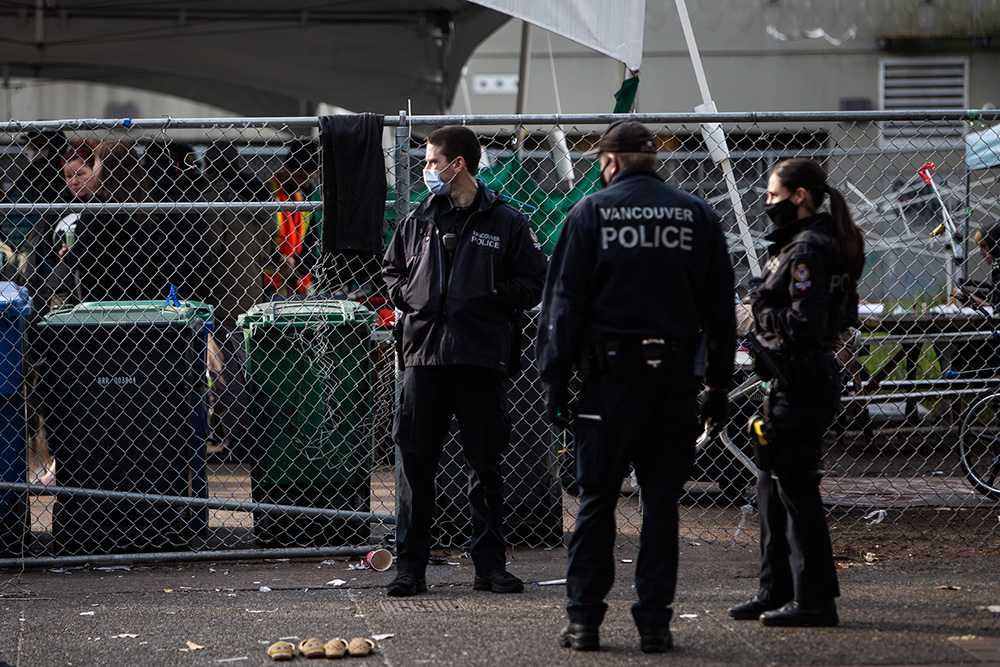If this country’s media institutions are to truly function as means of public enlightenment and civic education in this very dark time, then they had better be very clear about this difference.
by Jeffrey C. Isaac

Rep. Matt Gaetz (R-FL) greets supporters after speaking to a crowd during a rally against Rep. Liz Cheney (R-WY) on January 28, 2021 in Cheyenne, Wyoming. Gaetz added his voice to a growing effort to vote Cheney out of office after she voted in favor of impeaching Donald Trump. (Photo by Michael Ciaglo/Getty Images)
This week Jonathan Chait published an eviscerating profile of gun-toting Republican Congresswoman Marjorie Taylor Greene in New York Magazine, cleverly entitled "GOP Congresswoman Blamed Wildfires on Secret Jewish Space Laser."
Chait leads with a reference to "The Mischief Makers," a short piece by Alayna Treene and Kadia Goba, published in Axios. As he comments on the piece's framing: "The leading Democratic mischief-maker is Alexandria Ocasio-Cortez, who advocates some left-wing views I consider simplistic and impractical and, in some cases, poll badly. The top example of a conservative mischief-maker, presented in perfect symmetry, is Marjorie Taylor Greene." He then sardonically notes that "Greene's views are just a bit more controversial," and proceeds to identify the range of delusional and/or fascistic things Greene has very publicly said, exemplified in Chait's very title
His conclusion:
. . . it is true that Marjorie Taylor Greene and Alexandria Ocasio-Cortez play equivalent roles within their respective parties. MTG holds down her party's right flank, and AOC holds down her party's left flank. You can somewhat deduce the corresponding beliefs of the two parties' mainstream contingents by moving somewhat to the center of each. Most Democrats are skeptical of defunding the police and question the feasibility of transitioning to a state-run health-care system. Most Republicans are probably quite skeptical that the California wildfires were intentionally set by a Jewish space laser. The thing is, you can be much more moderate than MTG, and still be extremely crazy.
Chait's piece appears to mock the Axios piece, pointing out the absurdity of likening AOC, whose views may be "impractical," to Greene, whose views are both deranged and dangerous. But it also trades on the Axios equivalence, by continuing to play the two "extremes" off against each other to the benefit of "moderation." His purpose is clearly not to defend AOC but rather to defend those centrist Democrats who find her annoying. His point seems to be something like this: "both parties may have their crazy extremists, but the Republican extremists are crazier and more dangerous and, because they pull their party far to the right, their centrists are much less moderate than the centrists of the Democratic party, who thankfully have not allowed their extremists as much power." Readers of Chait will be unsurprised by this message, because while he has long been a loud critic of the Republican right and its domination of the party, he has also been a strong and often tendentious critic of the Democratic left.
There is no comparison between the Democratic party's left and the Republican party's right.Chait has it both ways with the Democratic left in the piece, for he is clear that AOC is no Marjorie Taylor Greene even as he disses them both (for, honestly, being less scary than Greene is a low bar indeed!).
The Axios piece, on the other hand, in typically Beltway-gossip fashion, goes all in on the false equivalence.
The lead: "Several Republican and Democratic lawmakers are emerging as troublemakers within their parties and political thorns for their leadership. . . . We're calling this group "The Mischief Makers"—members who threaten to upend party unity . . . Axios spoke with a number of congressional sources about whom they find to be the most unpredictable and headache-inducing. Here's what they said." What follows is a list of five Republicans followed by a similar list of Democrats.
The Republicans: Marjorie Taylor Greene, Matt Gaetz, Thomas Massie, Louie Gohmert, and Mo Brooks.
The Democrats: Alexandria Ocasio-Cortez, Ilhan Omar, Rashida Tlaib, Ayanna Pressley, Jamaal Bowman, and Cori Bush (to be fair, the piece also names, in passing beneath the progressives listed above, two center-right Democrats, Jared Golden and Conor Lamb, who have "bucked" Pelosi's leadership).
The symmetry here is clear: the Republican rightists make life difficult for Republican leadership, and Democratic leftists make life difficult for Democratic leadership.
The Axios piece was published days ago, on January 28, over three weeks after the MAGA assault on the U.S. Capitol and Congress. And yet in its even-handed report of how Republican and Democratic leaders view their parties' respective "extremists," it fails to even mentionthis seemingly relevant fact: while all five of those pesky Republican mavericks strongly supported Trump and his "Stop the Steal" insurgency, and four of the five either praised the insurrectionists after the fact or perhaps even colluded with them, AOC and her progressive colleagues have long been staunch supporters of constitutional democracy who have had literal targets placed on their backs by Trump, Gaetz, Brooks, and company.
On the one side you have progressive legislators who have indeed supported the moderate proposals of Democratic leadership, and on the other side you have literal neo-fascists who insist on their right to refuse masks but to carry guns on the floor of Congress and who echo calls to "hang Mike Pence," the then-sitting Vice President of their own party. On the one side you have people of color—and allof those progressives on the list are people of color—who have been marked for assassination and who were hiding in fear of their lives on January 6, and on the other side you have the white supremacists who cheered on the MAGA vigilantes as they stalked their prey, acting like racist characters in Jordan Peele's film "Get Out!"
This false equivalence cuts the Republican right extraordinary slack while slandering the Democratic left, which is neither violent nor racist.
Just as importantly, it completely misrepresents the two parties and the way that they currently function. For those pesky Q-anon-sympathizing rightists might sometimes be a little too much for Mitch McConnell and Kevin McCarthy to handle, but they are in fact loyal and willing supporters of the man who has led the Republican party for four years and leads it still—Donald Trump. Far from being "dissenters," they—along with Devin Nunes, Jim Jordan, and a wide cast of equally despicable characters—have spent the last four years aiding and abetting the most dangerous and authoritarian administration in U.S. history. They are the Republican party mainstream. And, truth be told, while McConnell and McCarthy might find their hard core "sedition caucus" sometimes annoying, they too have used their substantial power to provide aid and comfort to the far-right cause and to the effort to overturn the election.
"The Squad," on the other hand, remains what it has been from the start: a group of mainly young progressives who have worked within the Democratic party to promote such "crazy" ideas as a Green New Deal, Medicare for All, and a $15 federal minimum wage. They seek to mobilize new voters and to defend voting rights rather than to restrict voting and overturn a democratic election! And they seek to draft and pass legislation through normal democratic channels, and refrain from calling out mobs to attack Congress while in session.
These are the leftist "extremists" likened by Axios to Marjorie Taylor Green and Matt Gaetz?
The parallel drawn is outrageous, absurd, and an act of journalistic malpractice.
There is no comparison between the Democratic party's left and the Republican party's right.
The former is a small caucus dedicated to promoting a progressive agenda through democratic means.
The latter is the vanguard of a neo-fascist movement that dominates the Republican party and poses a clear and present danger to constitutional democracy.
The former deserve respect and, in the eyes of many, myself included, they deserve admiration and support.
The latter deserve nothing but scorn, decisive political defeat, and historical ignominy.
If this country's media institutions are to truly function as means of public enlightenment and civic education in this very dark time, then they had better be very clear about this difference.
There is no time to lose.
And the future of democracy itself hangs in the balance.

Jeffrey C. Isaac is James H. Rudy Professor of Political Science at Indiana University, Bloomington. His books include: "Democracy in Dark Times"(1998); "The Poverty of Progressivism: The Future of American Democracy in a Time of Liberal Decline" (2003), and "Arendt, Camus, and Modern Rebellion" (1994).
Our work is licensed under a Creative Commons Attribution-Share Alike 3.0 License. Feel free to republish and share widely.

















